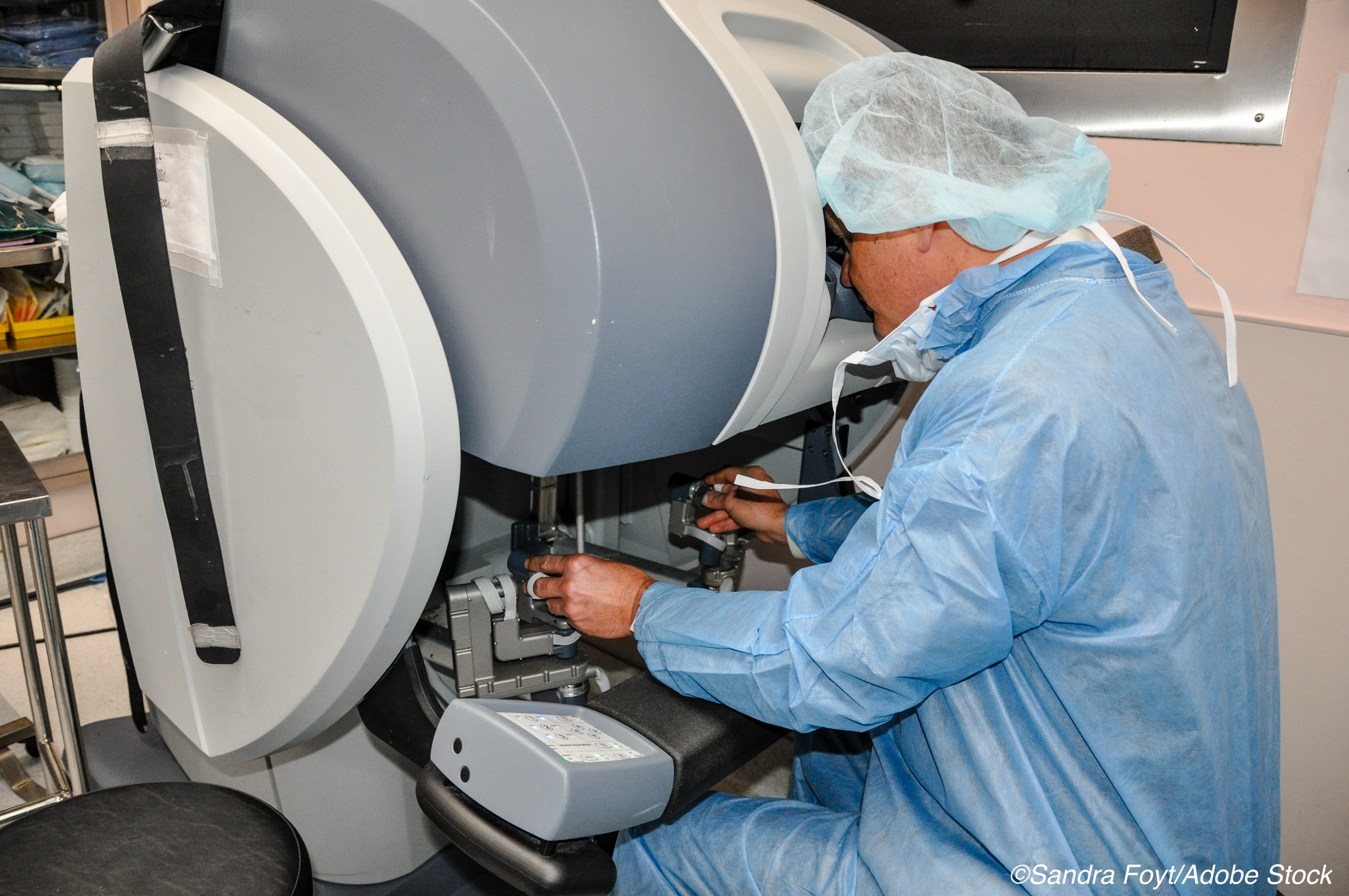WASHINGTON — The FDA approved the Hominis Surgical System, a robotically-assisted surgical device (RASD), for use in performing transvaginal hysterectomies.
The RASD device is controlled by the surgeon, guided by computer, working much like controllers for a video game. The fully articulated mechanical hands are inserted through the use of one or two small incisions (ports) thus allowing “a variety of surgical procedures or operations. RASD technology facilitates performing minimally-invasive surgery and complex tasks in confined areas inside the body,” the FDA explained.
“We are providing physicians and patients another minimally-invasive gynecologic surgical option for non-cancerous conditions,” said Binita Ashar, MD, MBA, FACS, director of the Office of Surgical and Infection Control Devices in the FDA’s Center for Devices and Radiological Health, in a statement. “The FDA continues to support advancements in safe and effective medical devices that can improve patient experiences when undergoing surgical procedures.”
The Hominis Surgical System works using minimally-invasive surgical instruments inserted through the vagina and a video camera inserted laparoscopically through a small incision on the patient’s abdomen to allow for visualization of the instruments, which the surgeon controls from the operating room using a console. The FDA is requiring the device’s manufacturer to develop and provide a comprehensive training program for surgeons and operating staff to complete before they are permitted to operate the device.
The FDA approved this device based on results from a clinical study involving 30 patients undergoing transvaginal total hysterectomy with salpingo-oopherectomy or salpingectomy for benign conditions. “Patients had varying characteristics such as ages ranging from 37 to 79 years, body mass index from 17.6–40, and 63% of patients had different comorbidities, such as high cholesterol, osteoporosis or high blood pressure,” the FDA wrote. “All 30 procedures with the Hominis Surgical System were successfully completed and there were no conversions to an open or other laparoscopic surgical approach. Observed adverse events included minor blood loss, urinary tract infection and delayed healing of the closure made at the top of the vagina (vaginal cuff) that is done as part of a hysterectomy.”
The Hominis Surgical System is manufactured by Memic Innovative Surgery Ltd.
John McKenna, Associate Editor, BreakingMED™
Cat ID: 191
Topic ID: 83,191,730,191,192,925,159



